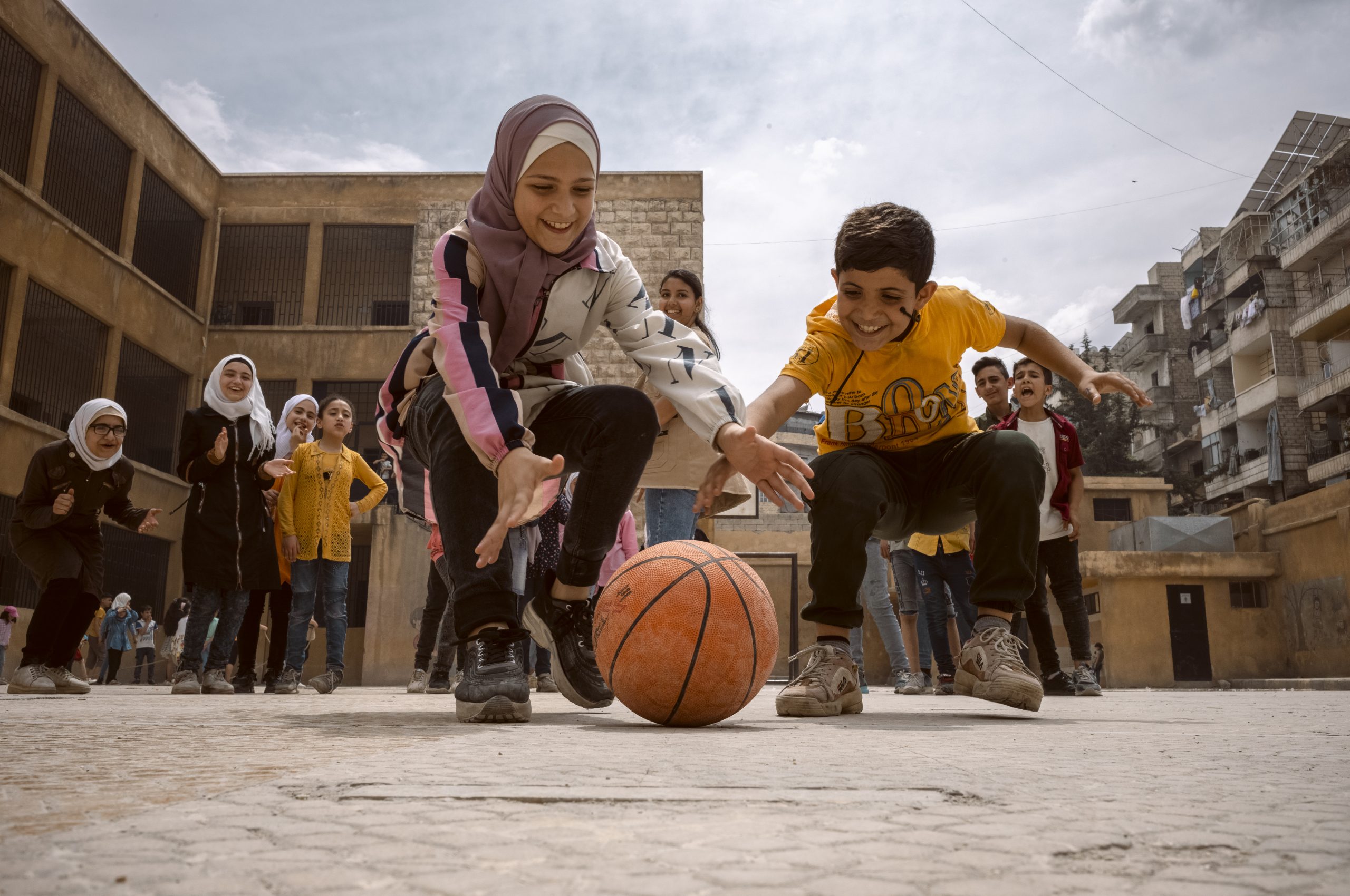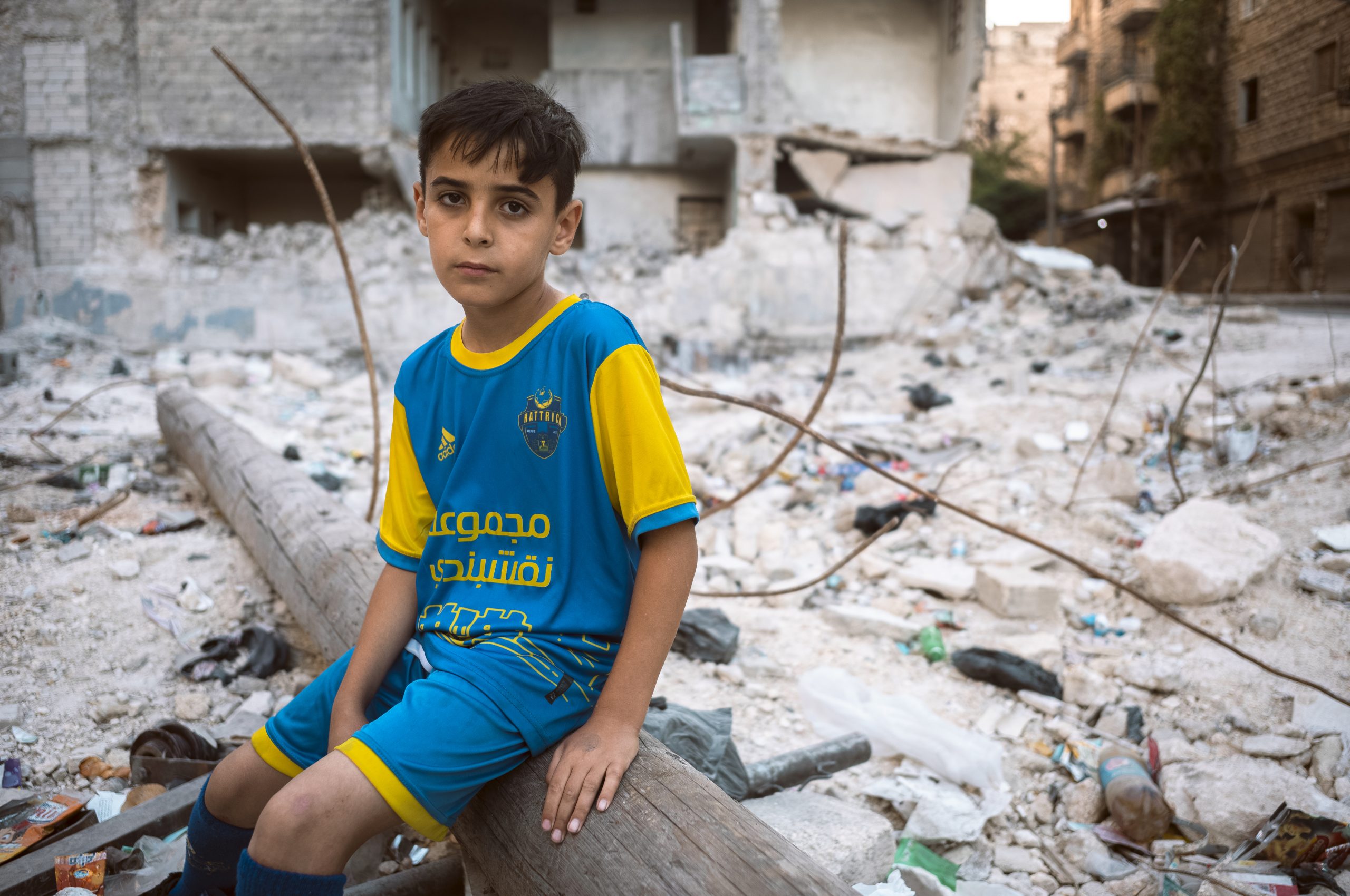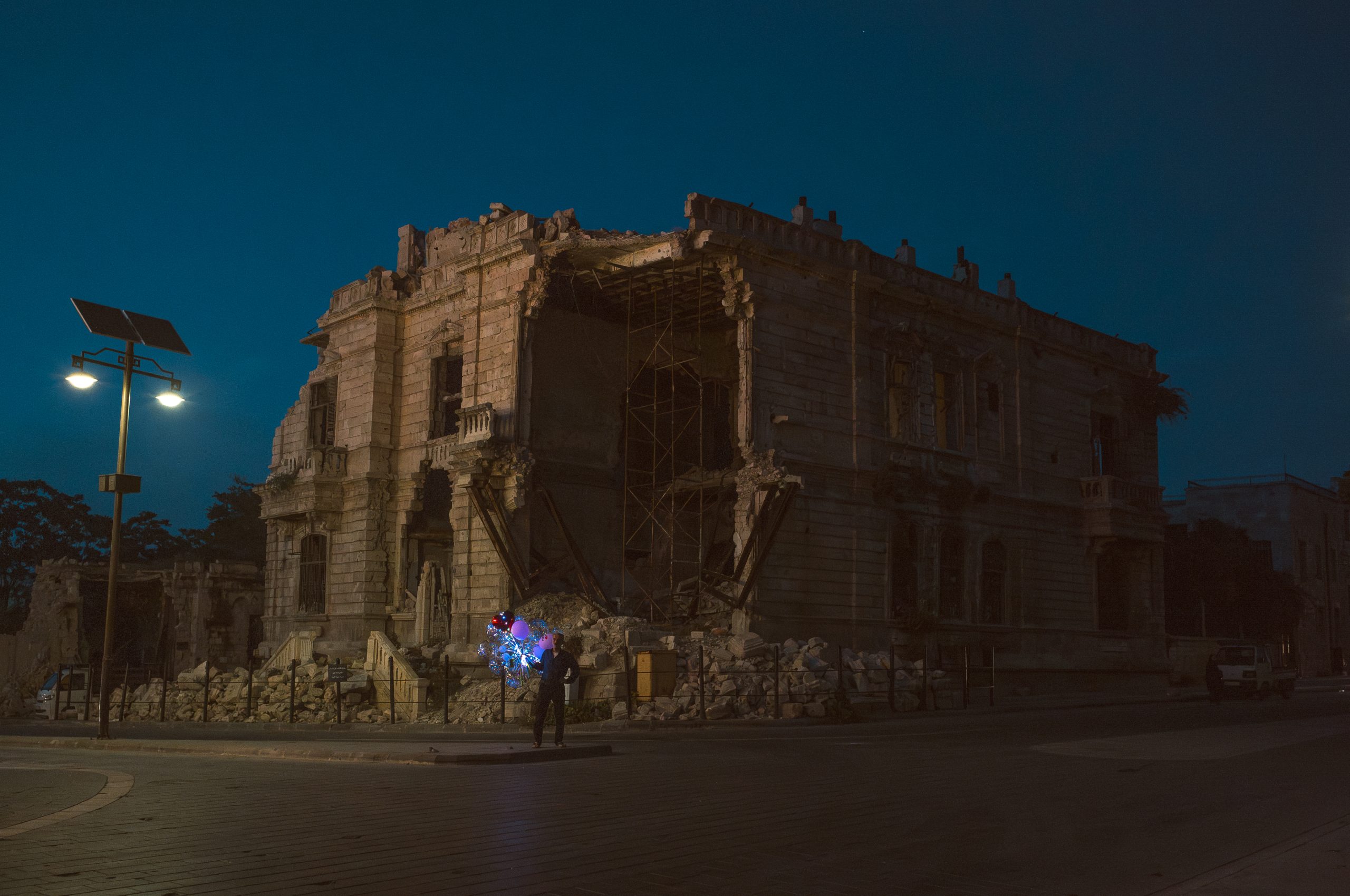Aleppo, My Beloved
Aleppo, a city of wonders, has seen thousands of years of history. These days, however, most would associate the city with urban warfare, snipers, and bombs. In addition to the terrors and deprivation of war, the city also suffered a devastating earthquake in February 2023. The people of Aleppo have witnessed something akin to hell – but still hold their hometown dearest in their hearts.
In Aleppo, northern Syria, the last glimmer of daylight shimmers amid the rubble. The call to prayer echoes in the air. The clock strikes ten to eight – the sun is setting. Although Syria has lived through a decade of horrifying humanitarian crises, magical moments like this still happen.
This was once a thriving city. History books tell us that Aleppo is one of the world’s longest continuously-inhabited cities. Those walking the streets experience whispers of the past, like the Al-Madina souk – an ancient marketplace of the 14th century. In the souk’s alleys, merchants traversing the Silk Road once sold fabrics, porcelain, spices, and perfumes of the Orient.
Now it is June 2023, and the bazaar is ruined. Fires have ravaged its alleyways during the last decade. Bombings destroyed stalls and shattered its historic features. February’s earthquake increased this devastation exponentially.
A narrow path weaving through the rubble takes one on a trip down memory lane in a city that has gone through extreme changes.
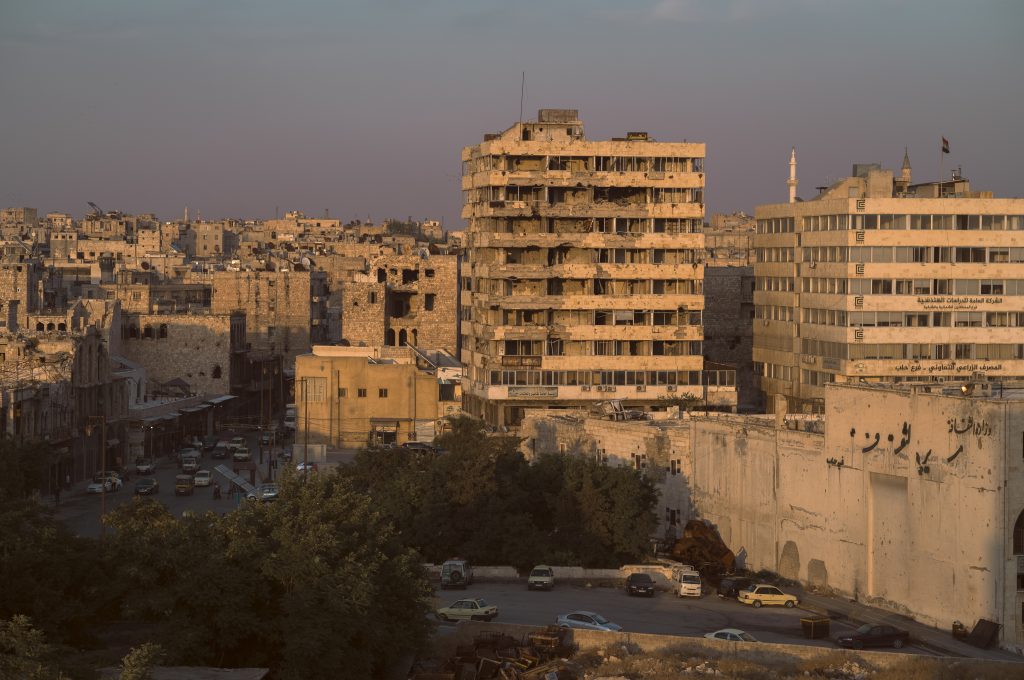
AMINA al-Sindyan, 63, shakes her head gently while watching her grandson showing off his somersaults. The grandmother proudly identifies as a native Aleppo girl. She has lived in this city all her life, apart from 2013-19, when her family fled the war to Latakia in western Syria.
Amina has lost her home in Aleppo twice: first to fighting, then to the earthquake. Currently living with her family in a makeshift shelter set up in a school, she longs for her hometown as she remembers it before the crises.
“I still remember what it was like, going out to buy things. All the shops were open – I could find everything I needed.”
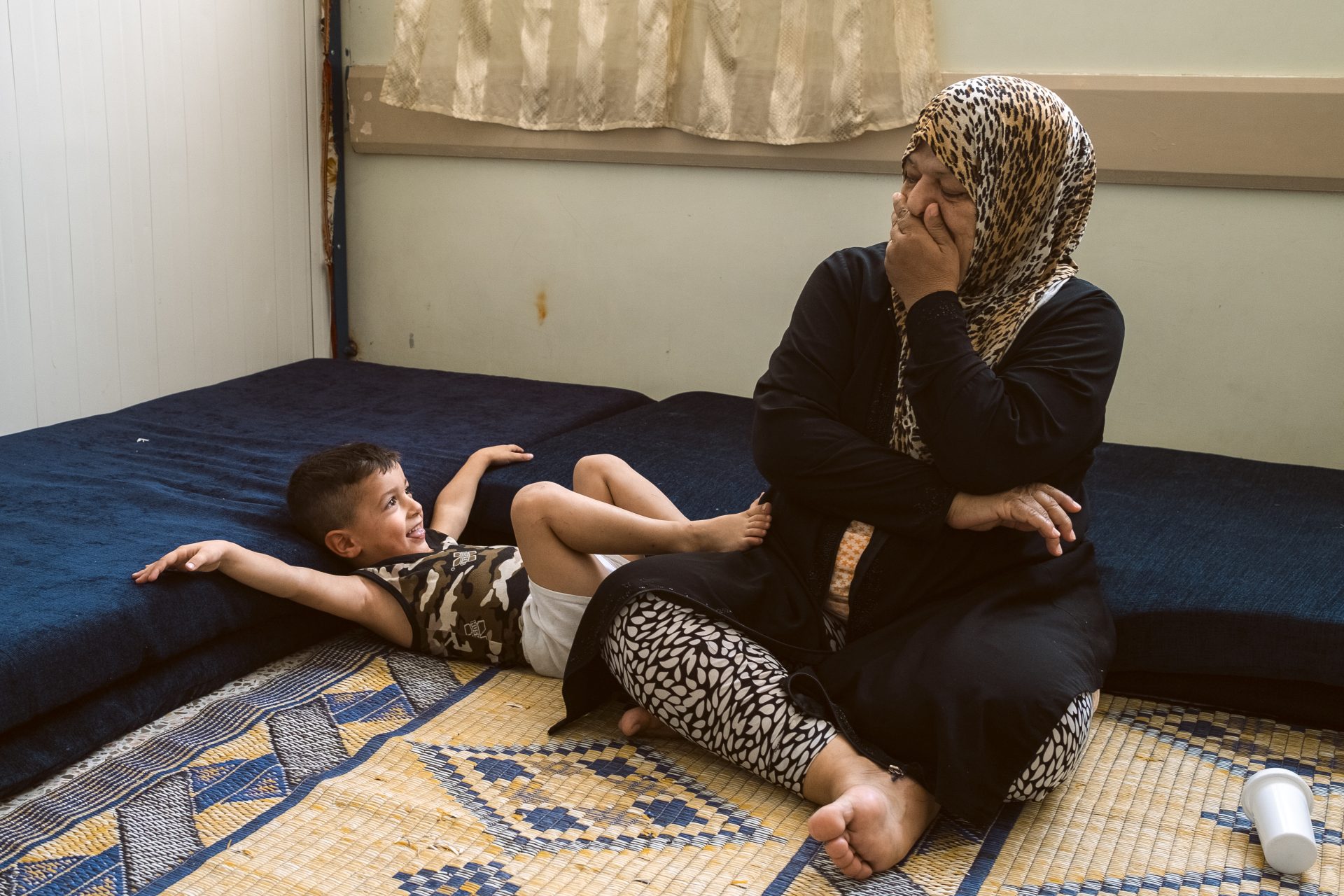
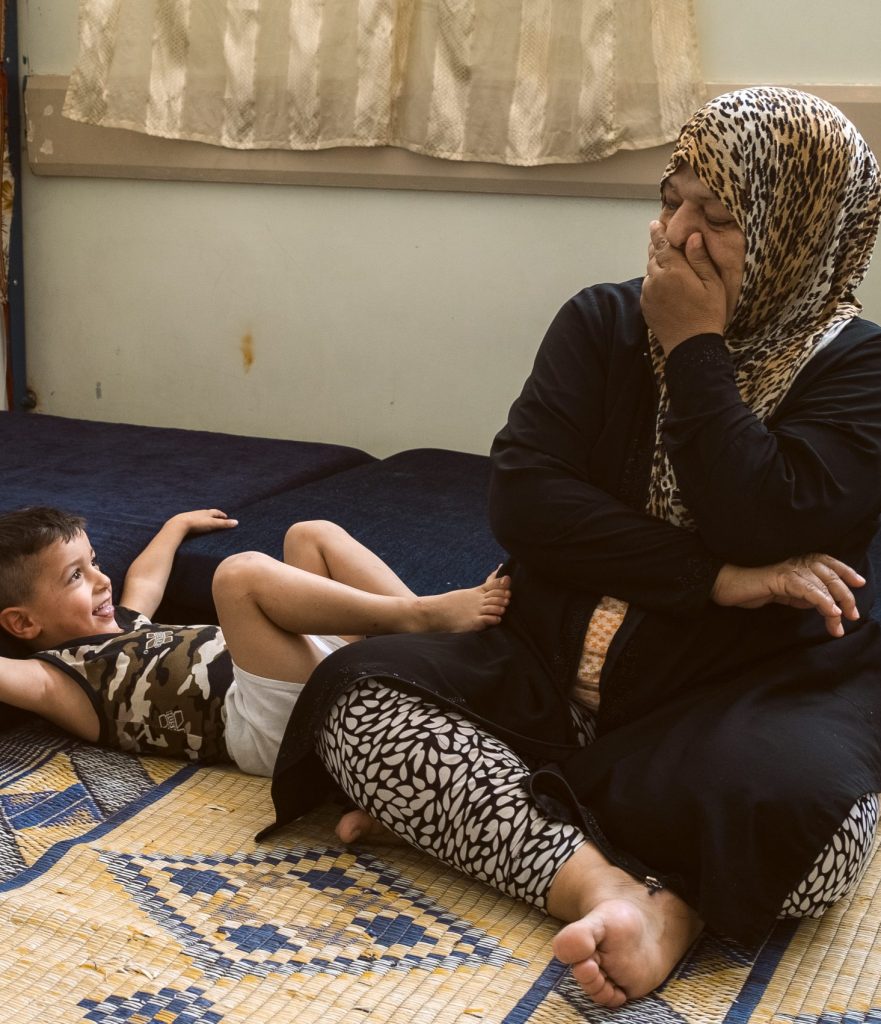
Families in Aleppo are now in dire financial straits. The value of their money has crashed, and Amina al-Sindyan gives us an example – the bride-prices customarily paid in Syria when daughters marry.
“One of my daughters got married before the war. We got a bride-price of 50 000 Syrian pounds. It was a good sum and it supplied everything the new family needed. Recently, my other daughter also got married. We received a bride-dowry of one million, not that that would buy much these days,” Amina says, shaking her head in exasperation.
MONEY is not the only thing in her mind. Born in the sixties, she comes from an open-minded family. Even back then, the father of the family considered his daughters equal to him and wanted them to enjoy a wide range of rights. Amina and many others in Aleppo have felt the atmosphere of their hometown becoming more tense over these issues during the past decade.
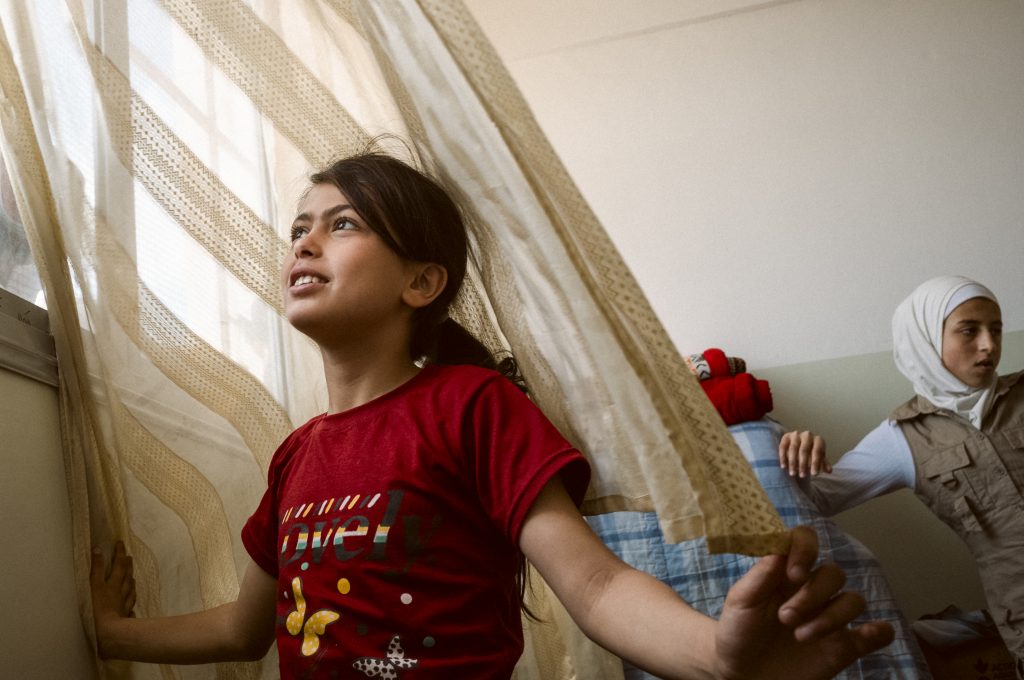
The reasons for this change? War, terrorism, and all their consequences. As we talked to the citizens of Aleppo, they repeatedly brought up how fighting has led to changes in the city’s population.
Aleppo is a university town. Many of the city’s prewar inhabitants were educated, and these were the ones who had the money and opportunities to escape the violence. At the same time, less educated people from the countryside fled to the cities.
“Our educational backgrounds and the way we raise our children are vastly different,” Amina al-Sindyan says. She offers a recent example; discord at an emergency shelter for families who lost their homes in the earthquake.
Living through years of war in Latakia, western Syria, the women of the al-Sindyan family got used to wearing jeans and t-shirts. After returning Aleppo in 2019, they realised this is no longer possible. After the earthquake, their neighbours in the emergency shelter told al-Sindyan’s 11-year-old granddaughter to put on a headscarf and did so very directly.
Thus far, the family has not obeyed the neighbours’ orders.
“I want my grandchildren, especially the girls, to go to school. This is currently impossible due the poor financial situation of our family,” Amina says. She tells us that, despite her open-minded father, she once married a man who severely restricted her life during their life together.
“The girls either go to school or have to get married. I don’t want any woman to have to live how I’ve lived.”
Here, children can exercise, play and make music while also receiving support, including lessons on how to protect themselves from the earthquake and how to process their fears and traumas.
During lessons, little hands go up in the air and questions are asked at a rapid pace. We request Yusef Mouhammad Bdeoi, 7, to show us how he would protect himself from an earthquake. He complies, burrowing under his desk and covering his head with his hands.
“Many children have misconceptions about earthquakes. They tell me how they ran out of their houses. But people often died in collapsed stairwells while fleeing their homes,” says Jalila Mouhamad Wilfe, 45, who teaches the lesson and explains the importance of these skills.
Jalila is a psychology teacher. In the past, she talked to her students about child marriages, child labour and being in a family, but since the earthquake, lessons have been dominated by just one subject. More than 72,000 families in Aleppo lost their homes when the quake hit the city, already traumatised by the horrors of war.
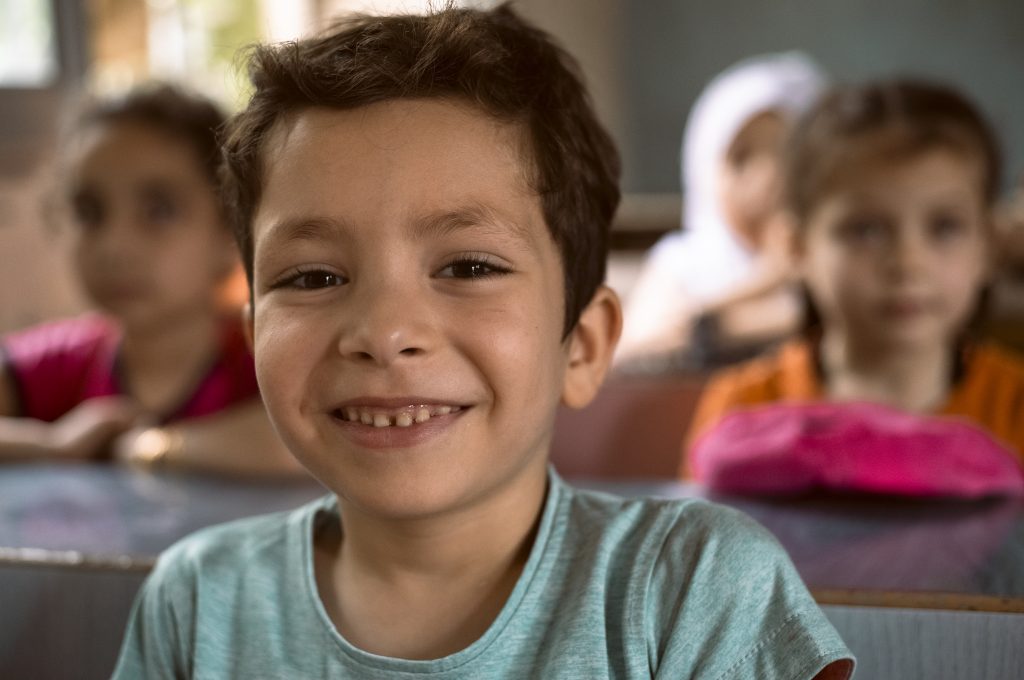
ON THE OTHER side of the city, curtains undulate in the breeze of the evening on the balcony of School Principal Ramia al-Naser‘s home. The calm and domestic image strikes an absurd contrast to the rest of the neighbourhood, where apartment buildings collapsed one after another on the morning of February 6. Mrs. al-Naser’s home has also half collapsed, and for safety reasons she is living with her three children and husband in an emergency shelter set up at her school. Memories of the earthquake are still fresh.
“I woke up to a loud noise that seemed to be coming from inside the earth. We ran outside and realised that everything was destroyed. Our neighbours’ cries of distress echoed through the streets. 50 residents in our apartment building died that night,” al-Naser says.
Ramia Al-Naser hopes that her family can soon find a home to replace the destroyed one. However, money is a problem for many families who have lost their means of subsistence.
“A rent for a family of our size in Aleppo used to be USD 10 per month. Now, a similar apartment goes for USD 50,” she reflects.
The average income of an Aleppo resident is around USD 30 per month. Beyond income, housing is another fundamental challenge: it’s easy to see how Aleppo’s housing stock has been destroyed in many places by the war and the earthquake. The homes simply no longer exist, and few people have the means to repair them.
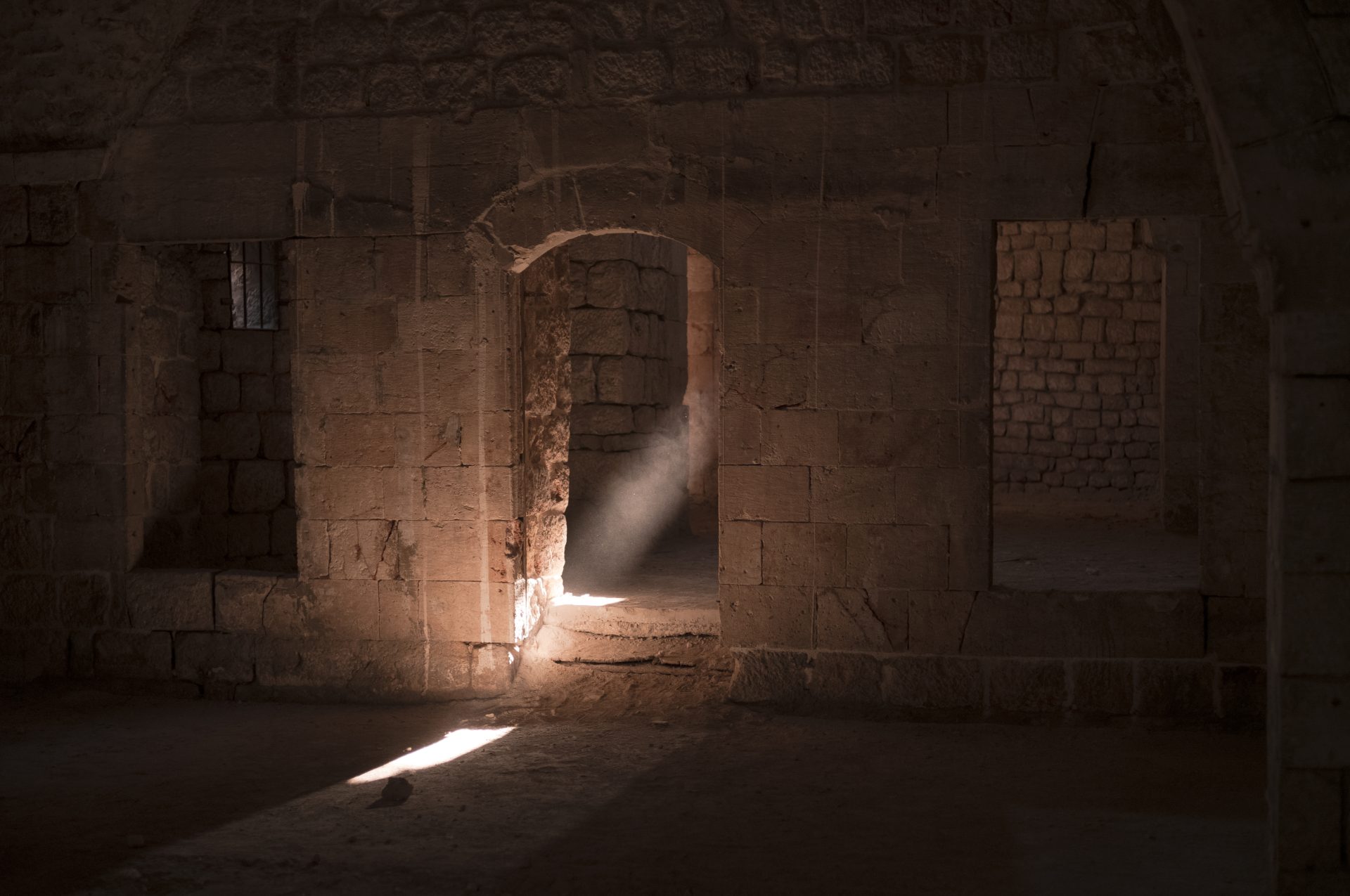
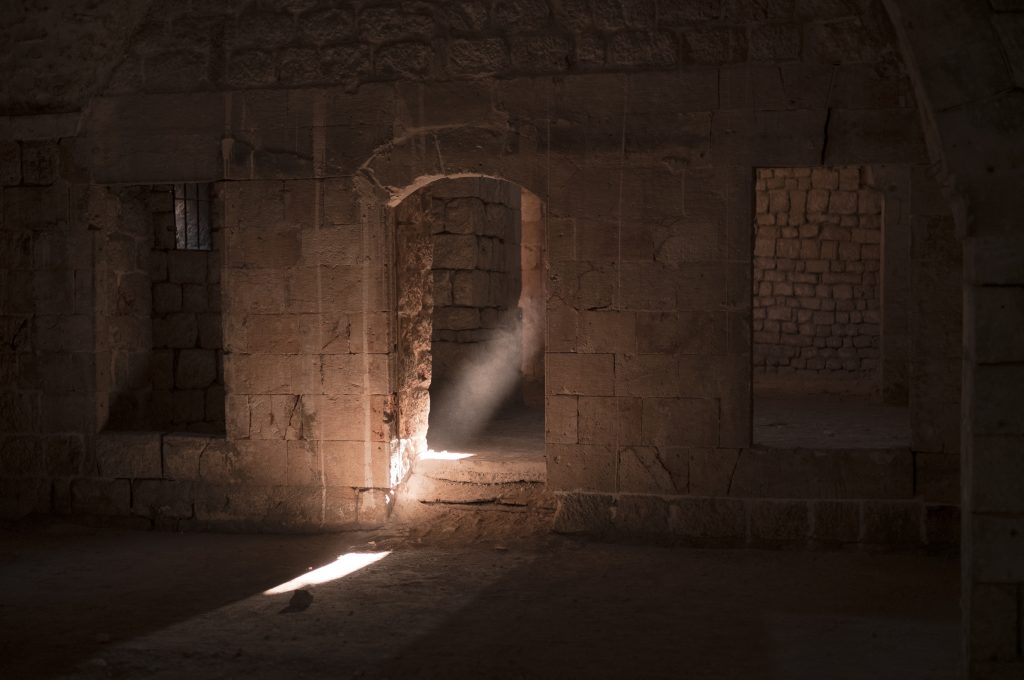
ALIA Dwabili, 52, who lives in the historic quarters of the old city and has received a cash grant from Finn Church Aid to renovate her home, also knows this. A narrow, steep staircase leads up from an alley protected by a high wall. Here, above the roofs of the old city, is Alia’s home, and when the first earthquake struck, she fled these same stairs, still drowsy after sleep. In a way, she was lucky; the next quake collapsed the roof over her bed.
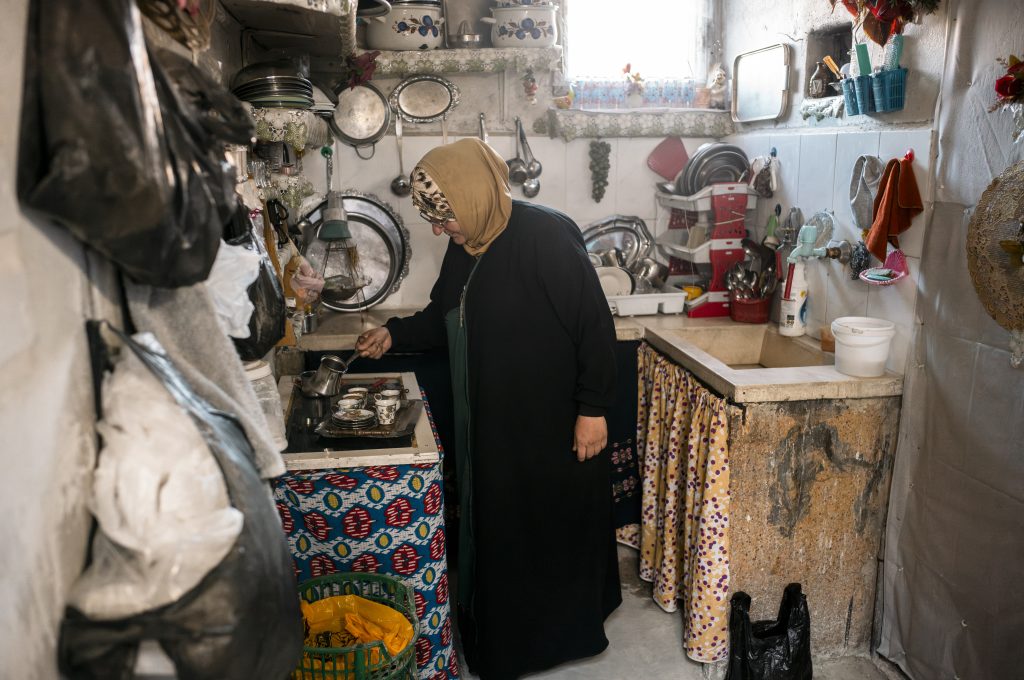
Alia Dwabili was born in Aleppo and has lived in the city throughout the crises. At one time, her neighbourhood was the worst battleground of the conflict. Indeed, Aleppo was a scene for urban warfare in 2012-16. Alia, just like everyone who experienced this period, could tell countless stories about how the lines between the different sides cut through neighbourhoods and where the snipers’ nests were.
Aleppo’s recent history of warfare repeats a pattern seen in the region’s history over hundreds and thousands of years. The city, known as the centre of what is now northern Syria, has seen power struggles since well before the dawn of time, such as during the Crusades, the Ottoman Empire, and the time of Syrian independence.
During all these times, the plight of the civilians has also been clear. After every battle, bombing and now the earthquake in the 21st century, Alia Dwabili has faced a harrowing task. She, along with other members of the neighbourhood, has had to collect the bodies of the neighbours that have died.
“No words can fully describe how that feels,” she says, moved to tears. Nevertheless, she thinks it feels good to find words for the things that have happened to her over the past few years.
Locals describe Alia Dwabili as the soul of the neighbourhood – a woman who lacks everything yet offers help to everyone around her. They tell us how she runs a clinic in her home, bringing together health professionals and women in need of aid under her roof. On a June evening, Alia offers coffee, pats us on the shoulder and wipes tears from the corners of her eyes. Then she slaps her hands together, laughing happily, her charm exuding to all around her.

For families in Aleppo, late evenings and early nights have always been when the city’s two million people can come alive. Thus, it will also be on this June evening of 2023.
Locals sit in the Aleppo fortress, in the heart of the old city. Before the war, the city’s people used to gather in the evenings to drink in cafes. Few afford to do so anymore.
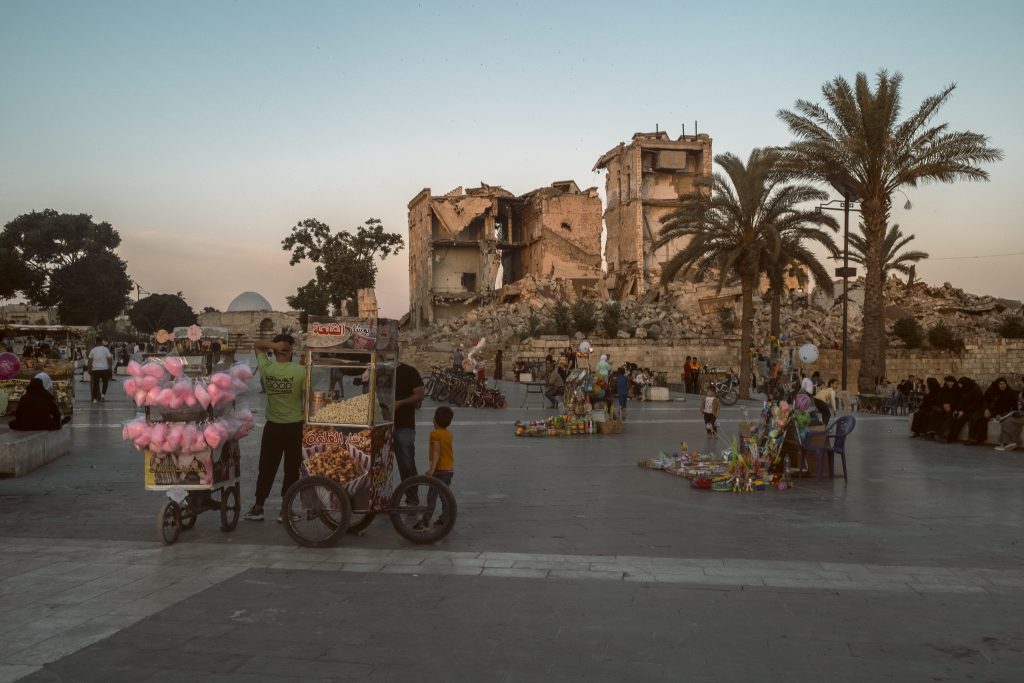
Now, hookah pipes are lit and picnic boxes opened on park benches. Children run around the squares and people catch up with acquaintances. Romantic Arabic songs echo from loudspeakers, and, in the cafés, some people are tempted to dance on their seats. Their wrists move gracefully.
There is something magical about the nights in Aleppo, and every person we met who grew up in Aleppo mentions the same. It’s put into words most beautifully by Alia Dwabili.
“Aleppo is my passion. I love this city so, so much – I could never imagine leaving it.”
FCA’s earthquake response in Syria is supported by Syrian Humanitarian Fund (SHF).
